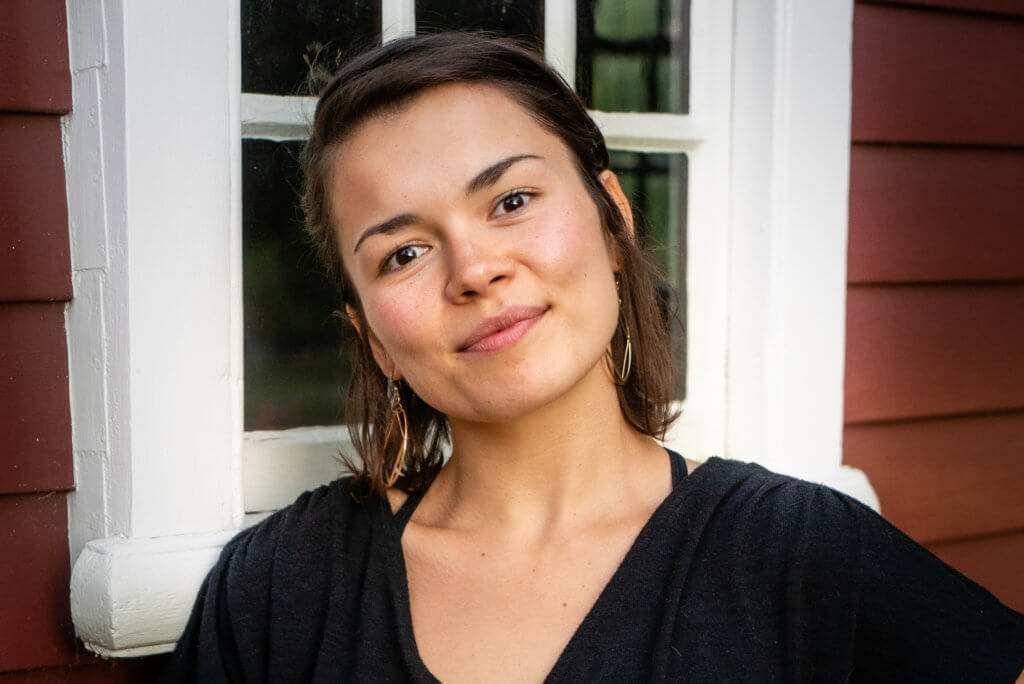Episode
Highlights
INTRODUCTION
“I’m from Los Angeles, California, first generation, low income. Both my parents are undocumented Mexican immigrants.”
—MIKAYLA
PETITIONED TO STAY
In March, when Brown University decided to close and transition to remote learning, I was introduced to Mikayla, who, at the time, had just petitioned to stay on Brown’s campus.
“It definitely was a lot difficult in the beginning, a lot more difficult to just find a balance between just relaxing and being able to do my work and concentrate on something that wasn’t the Coronavirus and how it’s been evolving and just how far away I’m from my family.”
—MIKAYLA
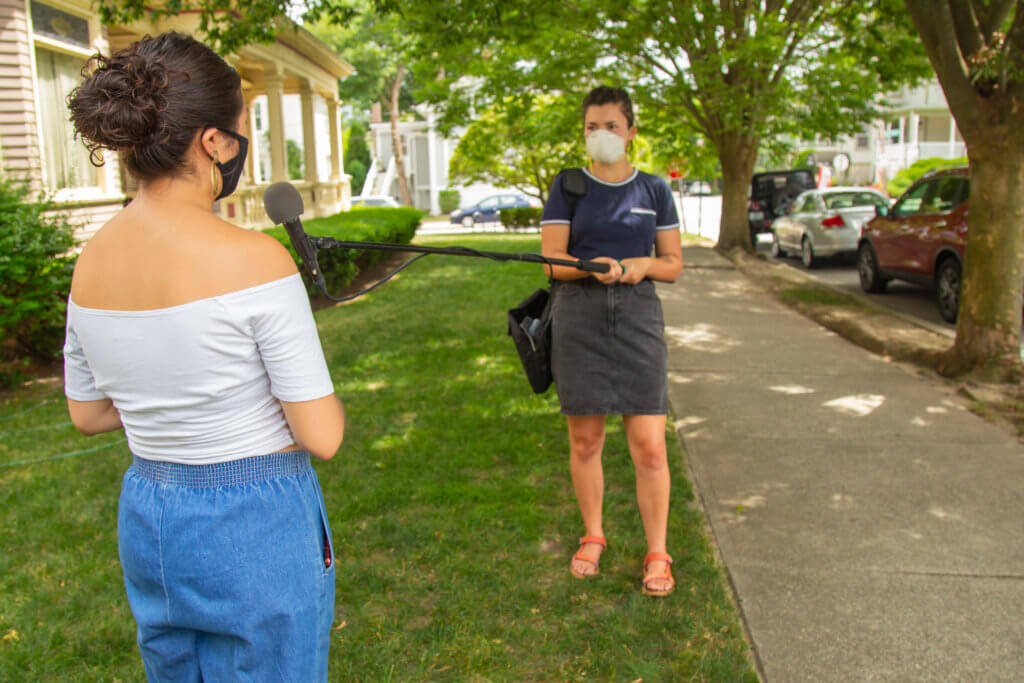
Ana and Mikayla outside of her off-campus apartment | Photo: Cheryl Adams
THE INTERNSHIP
“I call back. I was very nervous, I was shaking…This internship offered more than $5,000 for the summer. So it was just, at this point, it was, like, my only means of sustenance. So I called and she said, “Congratulations! You’ve got the internship.” I was so happy.”
—MIKAYLA
BACK TO L.A.
“Like, if I didn’t go back home, they would take it very personally and think that I just didn’t care enough about them to go visit them….I always, like, struggle with feeling guilty about doing something that makes me happy, especially during this pandemic because it is a danger. It is a public health hazard. But also, I really want to see my family. So it feels like a selfish choice, but I ended up booking the flight….”
—MIKAYLA
STAYING PUT
Before the pandemic, her parents had talked about returning to Mexico, to be with the rest of the family and find work without fear. That’s on hold now.
BACK AT BROWN
The goodbyes with her family are tough. COVID-19 is ravaging the country. On May 28th, the day Mikayla is recording this, the US surpassed 100,000 deaths from the virus. The future is unplannable.
“I know some of Brown’s dorms are constructed to look like a prison, but it literally felt like a prison when I came back home. Back to my dorm, I mean…it was like a feeling of emptiness…”
—MIKAYLA
A CIVIL UPRISING
“Like, the days of this week in which you have just been walking around Providence had been, like, very ominous. We actually did have a curfew instated, like, a couple of days ago.”
—MIKAYLA
UNDOCUMENTED FEARS
This fear, this culture of staying out of the public eye, not asking for help until it’s too late, this carries over into other aspects of life. It’s one of the reasons why the coronavirus has hit Latino communities so hard. Seeking medical treatment requires testing, paperwork, bureaucracy. Some testing sites even have the national guard at them. If you’ve lived your whole life hiding from authorities, why would a pandemic change that?
Mikayla’s experienced this fear too in other ways. Growing up, it was hard for her to get the help she needed to get into the colleges she wanted to attend. She had to speak up and look outside of her family. Now, when she’s figuring out what to do after college, Mikayla faces that same predicament.
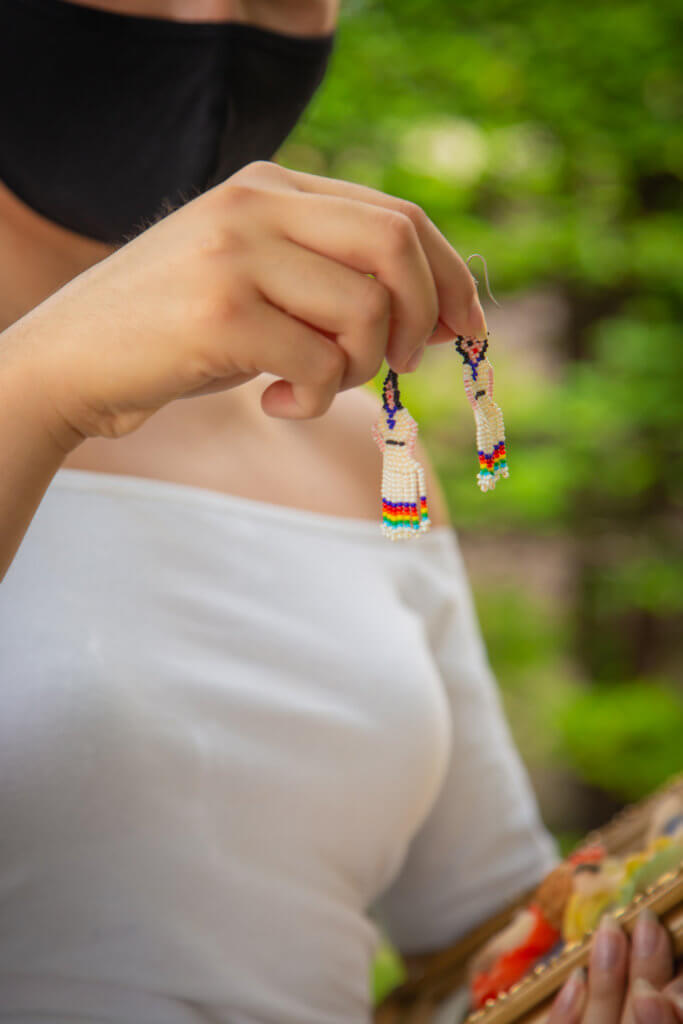
Mikayla holds up earrings from her only trip to Mexico. | Photo: Cheryl Adams
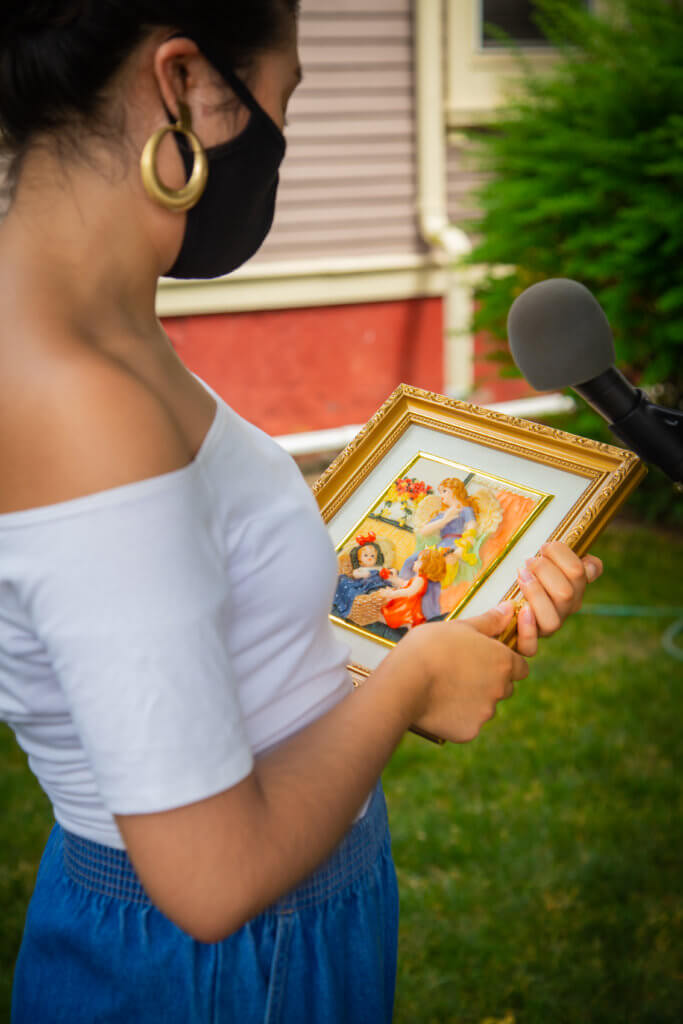
Mikayla looks at a portrait of angels that her mom gave her before her baptism. It reminds her of home. | Photo: Cheryl Adams
CULTURAL DIFFERENCES
“You know, in America, it’s very individualistic and you pursue your passion, your career you do what is what it is that you want, you leave your family in a way to venture out and be your own person. But I don’t know if this is more generally like Latinx culture and Mexican culture, which is my family’s culture, but for them, it’s communal. You know, one might leave the hive to pursue something but once their success or money there you come back and you bring it back to the family. There is no ‘You’.”
—MIKAYLA
SELFISH
“My dad sent me a picture of him and my brother selling clothes outside with, like, a little small clothes rack in the fashion district where he works… And he said that he had been there since 4am. I don’t know, I felt selfish for having sent them a picture of me just going out and spending money. You know, just having fun… when he already works a job from 1 in the morning to like 3:30 in the morning, and then works every other week day….I felt very selfish, just having taken that trip. It’s difficult.”
—MIKAYLA
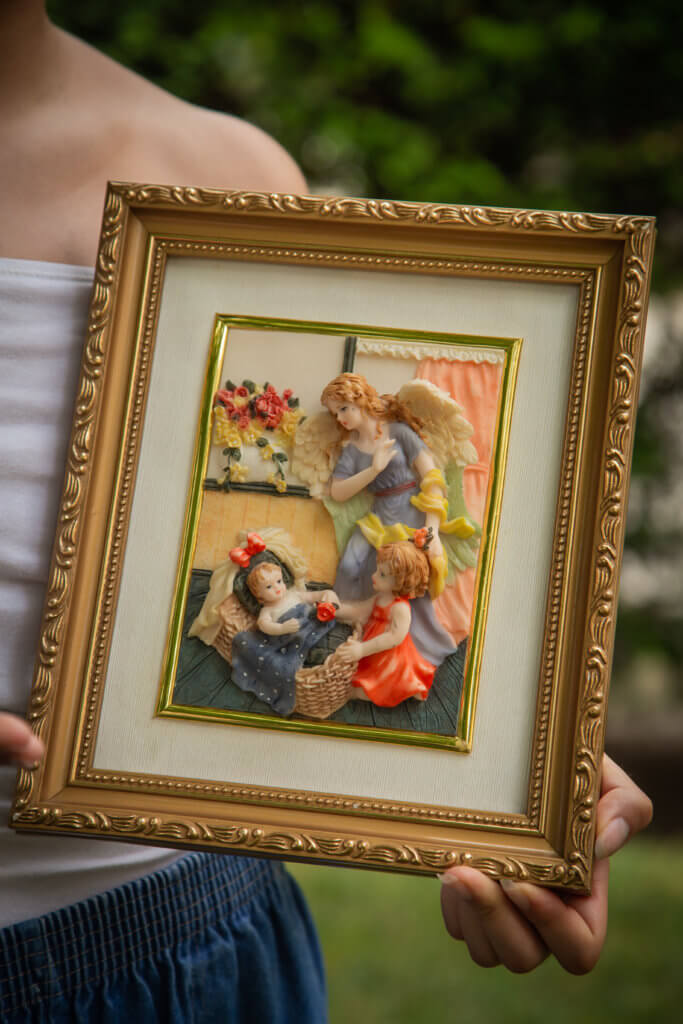
Close-up shot of the angels | Photo: Cheryl Adams
FOCUS ON THE FUTURE
“So, I guess the last stress I have this semester is with the choice of whether I take three classes, which is one less than the regular course load, or four. Because I don’t know how I’m going to accommodate this working part time 10 to 20 hours a week. Like, it’s a lot and for those reasons is why I decided to also stay here rather than go home because even though it would be nice to see my family I know that, whenever I go back home, I don’t do anything. And I think it’s smart to maybe just capitalize, even though it felt a little selfish, on the time that I have now to maybe just sit with myself and think about what it is that I want to do in the future.”
—MIKAYLA
Episode
Resources
Learn about the world Mikayla comes from in L.A.
